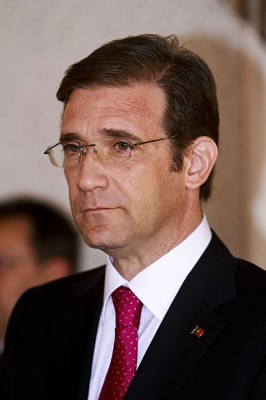Last week’s meeting of EU finance ministers brought about new rules on bank collapses. The new rules are definitely inspired by Cyprus event. Under the new regime, banks’ creditors and shareholders would be the first to take losses. But if this proves insufficient to rescue a given bank, savers holding uninsured deposits worth more than €100,000 would also take a hit. The forced losses could account for as much as 8 percent of a bank’s total liabilities. Only then would national governments step in and provide a taxpayer-funded bailout worth another 5 percent of the liabilities, and the ESM will be able to finance problematic banks directly. So, dear reader, please be careful which bank you chose and if you, or your business, have a bank account over €100,000. And you should be careful, because some banks just count on the bail out or bail in scheme. How do I know? The same was true with the Anglo-Irish bank which was saved by the Irish government. The taped conversations between two bankers revealed that the Irish government pumped €7 billion of emergency cash into the bank just on bankers fabricated estimation. In reality, they needed more money but the strategy of bankers was to pull government into the process of bail out, and once the government began the flow of money, it would be unable to step out of the process. I must admit that in some way it is very clever thinking. But is this the pattern how bankers think about money we have entrusted to them?
Portugal is facing another 2.3 percent contraction of its economy this year. The Prime Minister,
, stated that he does not see any possibility of more tax increases and his government would focus on reducing spending. We will see how successful it will be because he still has problems with 600,000 public workers who have mostly stayed immune to mass job cuts due to the constitutional court decision. But according to the IMF, the only possible way for Portugal is to cut its spending on wages and pensions, which constitute almost half of the government expenditure, and which are not used for interest payments.
Britons’ disposable income has fallen the most since 1987 as data showed in the U.K. Although the GDP rose 0.3 percent in the first quarter of this year and the economy is showing signs of strength, consumers are under pressure. Why? One of the reasons is increasing inflation which outpaces pay growth. The fiscal constrains have left the BOE as the main source of support for the economy. New governor, Mark Carney, will hold its first meeting on July 3-4, and we will see if he has for the U.K. any surprise in his pocket as regards new monetary policy rules.
Last week, we witnessed some stress on China´s inter-bank market due to the tightened liquidity. The People’s Bank of China stated officially this week that it has provided liquidity to some financial institutions to stabilize money-market rates and will use short-term liquidity operations and standing lending-facility tools to ensure steady markets. The situation in China is calmed for now but the pot is still gurgling. The main problem is the country´s shadow banking system which flourishes in China, because an estimated 97 percent of the nation’s 42 million small businesses can’t get bank loans within the normal banking system and savers seek higher returns.
The FED published its latest balance sheet data which shows us that the assets of FED reached $3,478,672,000,000; a new all-time high of course and up from $615 billion from last year. One of the consequences of the FED´s policy is that it moved high quality collateral from private hands. This collateral is the base of interbank confidence and a source of shadow banking liquidity. FED´s policy allegedly stands behind the so called U.S. economic recovery which looks as follows: approximately three-quarters of Americans are living paycheck-to-paycheck according to a survey released by Bankrate.com. The survey revealed that 27 % of Americans have no savings and approximately just one in four has some money to cover at least 6 months of expenses. And once we realize that more than 47.7 million Americans are now on some form of food stamps program (it was only 17.1 million in 2000) it must be clear that this is quite a strange recovery of the economy.



